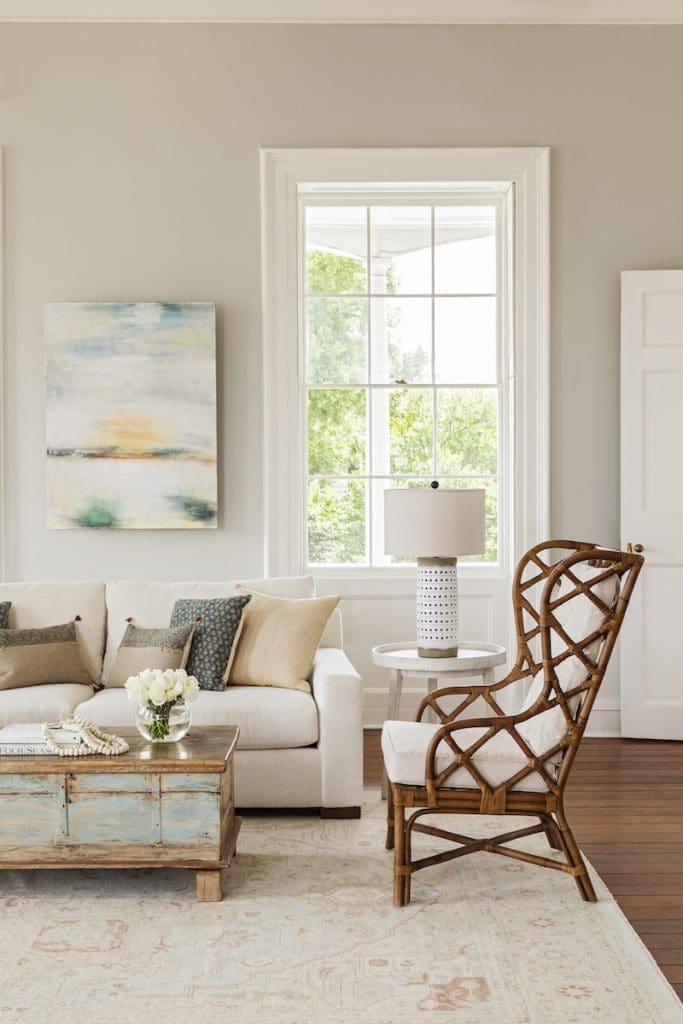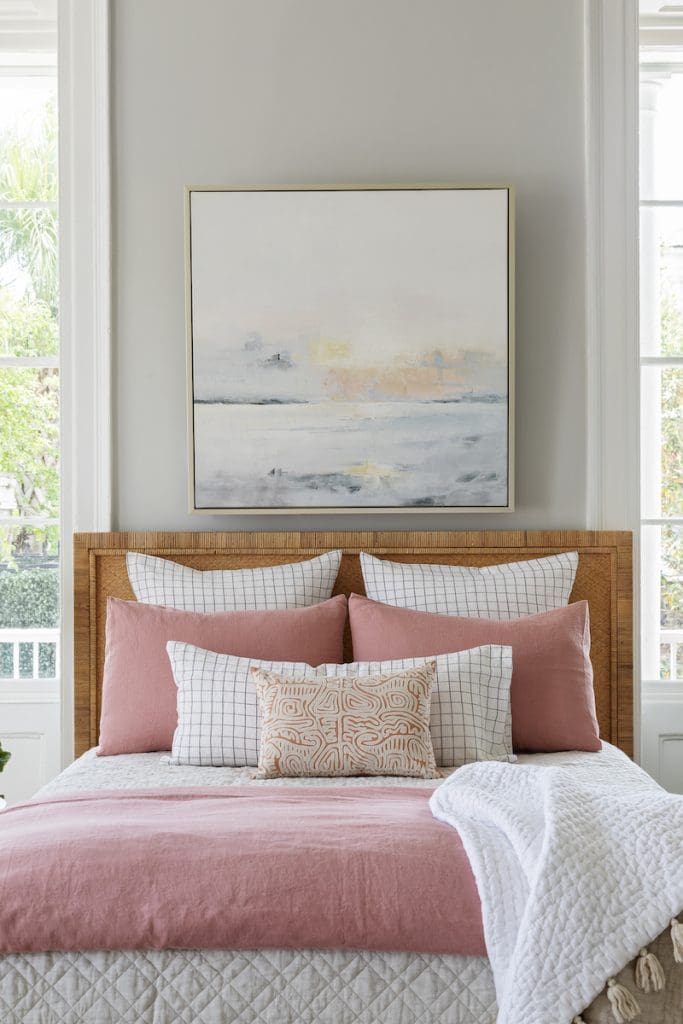
Art adds style, color, and personality to the home, but creating a well-thought out art collection takes a lot of time and energy that many homeowners don’t have. Art can also be expensive, which makes the decision of purchasing it more daunting. To give you some direction with choosing and styling artwork at home, we’ve compiled the following list of factors to consider. While art ultimately comes down to personal tastes, it helps to think a bit more concretely when you are designing your home.

Color
One of the first things you’ll notice about a work of art is the color. Whether it’s multi-colored or black and white, we recommend choosing a work that coordinates with the color palette of your room. Even if your art is going to serve as the accent color in the room, it should complement one other accessory in the room at least, be it the pillows or rug, etc. Colorful works of art can attract the eye and become a focal point, whereas a more minimalist work can serve to add texture in the background.
Scale
One of the trickiest factors when it comes to choosing art is finding a work that suits the scale of your room. Often, we’re attracted to works that are perfect in color and composition, but that just aren’t the right size. When in doubt, scale up – a bigger work of art will look like a statement, while a work that is too small will look even smaller if it gets lost on a large wall. If you’re hanging a work above a sofa, aim for it to be ¾ the width of the sofa. On the other hand, if you have many small works, you could consider creating a gallery wall.


Medium
Do you want a framed print, a one-of-a-kind oil painting or a mixed-media piece that brings texture and an eclectic feel to your space? The medium of the work of art you choose makes a difference in the overall feel of the work, so it’s important to pay attention. An oil painting is naturally going to come across as more traditional while framed photography is more contemporary and sleek.
Frame
Framing also matters to how your work will be perceived. A large ornate gold frame will add a traditional and luxurious feel, while a simple floater frame on a painting is a subtle, modern choice that lets the painting take all the attention. Of course, with certain paintings, you can even get away with having no frame if the sides of the canvas are painted – known as “gallery wrapping.”


Lighting
Finally, lighting is critical. Artwork isn’t meant to hang in the dark and if you’ve invested in a piece, you want to show it off in the best light. Once you have hung your work, take a look at how the light changes in the room throughout the day. If the work is in a spot that is not well lit, you might consider adding a picture light to hang above the work for illumination.
Art Makes Everything More Beautiful
There are no real rules when it comes to choosing and styling art, which is why it can be such a tricky process! It’s very subjective, so let your personal tastes guide you on your search for the perfect works of art. Art is always better when viewed up close, so we recommend coming by any of our three locations to browse our collection of art in person!
Shop the Look

Let Go
The perfect lowcountry landscape, a beautiful marsh painting to embrace the elegance of coastal living.

Tide II
This gallery wrapped canvas portrays a beach setting going out with the tides. A perfect Charleston day!



